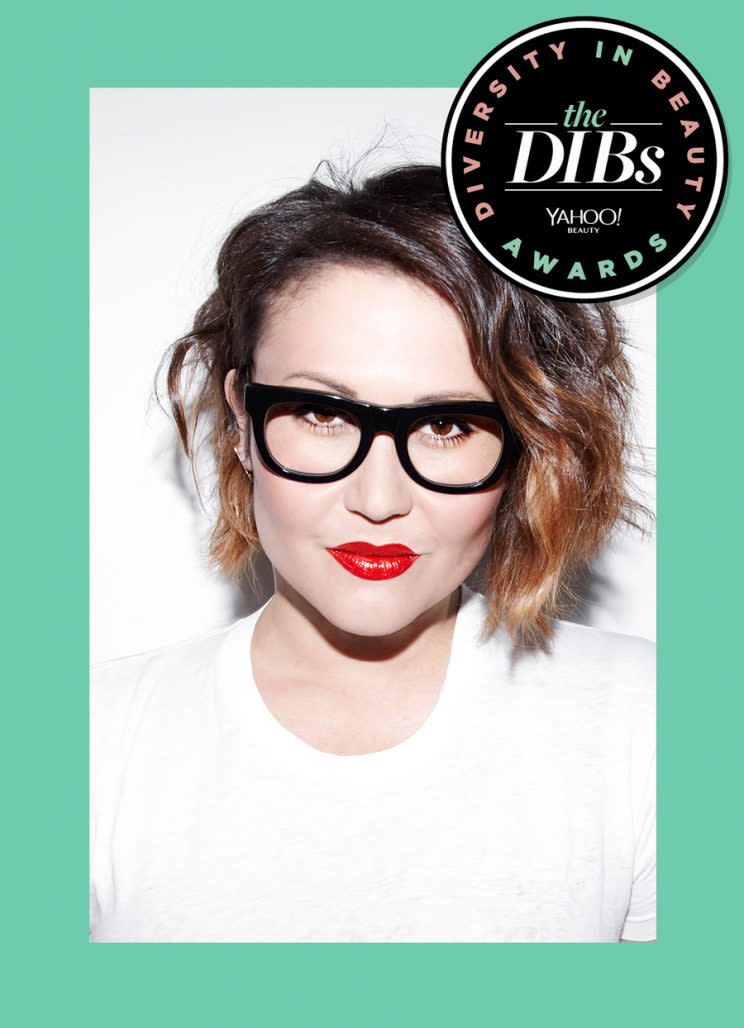‘There Is a Difference Between Cultural Exchange and Cultural Appropriation,’ Explains Beauty Expert

Yahoo’s Diversity in Beauty Awards (The DIBs) highlights and celebrates personalities, brands, and products that embody inclusiveness and innovation. We enlisted eight experts who have championed diversity in their careers and cover all bases of the beauty industry to vote on the best in makeup, skin care, hair care, and more. Here, we feature DIBs judge Robin Black, a makeup artist, photographer, and the woman behind Beauty is Boring.
Since launching her blog Beauty is Boring in 2012, makeup artist and photographer Robin Black has been working to change the face of beauty. Her inclusive approach to makeup comes from her global background: Born to Japanese and Irish-German parents, Black grew up traveling the world on a boat.
“I was fortunate to grow up in a very culturally diverse environment, and that informed my view of beauty in general,” Black tells Yahoo Beauty.
The envelope-pushing makeup she creates and captures in clean, modern photos is a testament to her multifaceted and diverse perspective on beauty. “I don’t have a single muse; I tend to fall in love with different attitudes, looks, and styles, depending on my mood. When it comes to Beauty is Boring content, I don’t have a particular agenda; I just choose faces that I find interesting or that suit a particular look,” Black says.
A post shared by BEAUTY IS BORING ???? (@beautyisboring_) on Feb 21, 2017 at 9:10pm PST
Black sees representation as the biggest diversity issue facing the beauty industry. “Beauty inspiration should be global, but there is a difference between cultural exchange and cultural appropriation. Unfortunately, some artists, publications, and brands seem to be confused about where that line is,” says Black.
She has a “really easy fix” for this problem. “If you don’t know, just ask. Ask someone who identifies with the culture that you are inspired by. If you don’t know where the look you are inspired by is from and you can’t be bothered to research it, then you are already engaging in cultural appropriation,” says Black. “Learn from them, and if they tell you it offends them, take them at their word. Communication, respect, and acknowledgment create a true cultural exchange.”
A post shared by BEAUTY IS BORING ???? (@beautyisboring_) on Apr 21, 2016 at 7:37pm PDT
When working with brands and publications, Black aims to fight against norms by pushing to cast diverse models, which can be creatively restricting for her when clients have narrow visions. “It can be frustrating, but I am gradually seeing a change,” she says. “When you work on those kinds of jobs, you don’t get to pick the model or the theme of the shoot. It’s not unusual to be told exactly what look you are going to do by a photographer or a publicist.”
A post shared by BEAUTY IS BORING ???? (@beautyisboring_) on Sep 20, 2016 at 8:43pm PDT
Black remains optimistic about the efforts being made in the industry, but maintains that realistically, much of the reason for a diversity push is profit.
“While I’d like to believe that it’s due to a moral awakening, it’s probably at least in part because brands are waking up to purchasing power of a previously untapped market,” she says. “It is nice to see a lot of brands expanding their color ranges to serve a broader spectrum of skin tones and using diverse models in their ad campaigns, but there is so much catching up to do!”
A post shared by BEAUTY IS BORING ???? (@beautyisboring_) on May 31, 2015 at 9:01pm PDT
Black points out that some of the biggest offenders are luxury brands. “There is a bit of a disconnect in the world of high-end cosmetics, although a few of the brands have started to recognize that,” she says, noting that NARS, Bobbi Brown Cosmetics, and MAC have been offering wider color ranges for years.
She continues, “Tom Ford is expanding their amazing Traceless foundation into much deeper colors, and Estée Lauder has done a great job of adding a ton of shades to their Double Wear collection. There are other brands that are doing things like adding deeper nudes to their lipsticks, creating translucent primers for a wider variety of skin tones, etc. but the changes are slower in the luxury space.”
But while Black is glad to see a broader spectrum of skin tones in cosmetics and more diversity in models across the industry, she says there is still much work to do.
For her, this means a simple approach to making a definite change in the beauty industry: “It’s time for a more inclusive, less gender-specific, less homogenous, global definition of beauty.”
Read more on Yahoo Style + Beauty:
Yahoo’s Diversity in Beauty Awards: Celebrating Inclusiveness and Innovation
This Makeup Artist Saw the Cosmetics Industry Failing Women of Color — and Changed It
Follow us on Instagram, Facebook, and Pinterest for nonstop inspiration delivered fresh to your feed, every day. For Twitter updates, follow @YahooStyle and @YahooBeauty.
